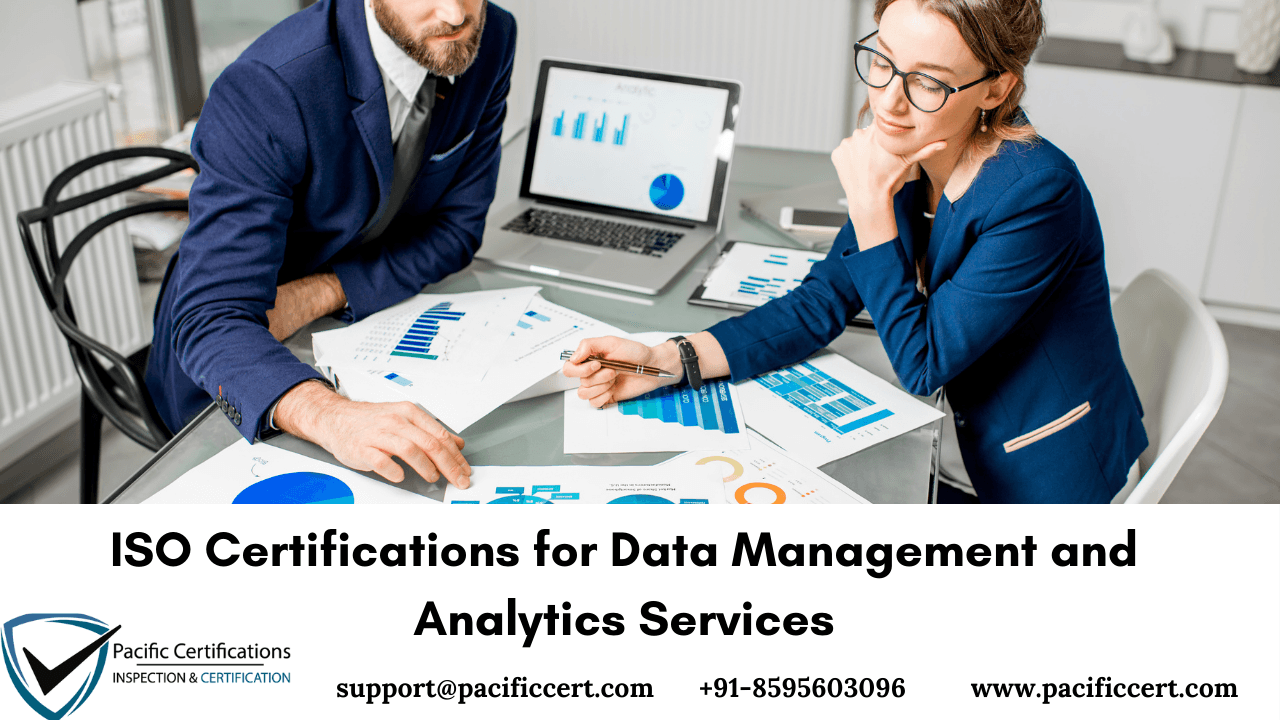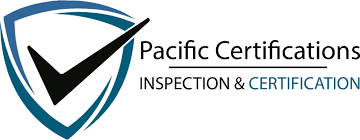ISO Certifications for Data Management and Analytics Services, Requirements and Benefits

Introduction
Data has become the foundation of decision-making in almost every industry. Organizations rely on data management and analytics firms for insights that drive growth and innovation. The global data analytics market is projected to surpass USD 650 billion by 2030, fueled by digital transformation, cloud adoption, and artificial intelligence.
However, handling large volumes of sensitive information comes with challenges. Firms must safeguard personal and business data and ensure accuracy of analytics. ISO certifications help establish clear systems for information security, quality, and data governance. For clients, certification is a sign that a service provider can be trusted with valuable data assets.
Data management and analytics services depend on trust, accuracy, and security—ISO certifications provide recognized frameworks to ensure quality, compliance, and client confidence.
To get your certification process started, contact us at [email protected] today!
Quick Summary
ISO certifications help data management and analytics companies ensure information security, privacy, and reliability. Key standards include ISO/IEC 27001 (security), ISO/IEC 27701(privacy), ISO 9001(quality), and ISO/IEC 20000-1(IT services). Certification reduces risks, supports compliance, and builds trust with clients in a data-driven world.
Applicable ISO Standards for Data Management and Analytics
ISO certifications also help companies to implement best practices in handling sensitive data, managing risks, and optimizing data analysis operations. Some of the most relevant standards for this domain include:
ISO/IEC 27001 – Information Security Management Systems (ISMS)
ISO/IEC 27001 is one of the most critical certifications for data management services. It provides a framework for managing the security of information assets, including financial data, intellectual property, and customer data.
ISO 9001 – Quality Management Systems (QMS)
ISO 9001 focuses on improving the quality of products and services, ensuring customer satisfaction.
ISO/IEC 20000-1 – Service Management System (SMS)
In the field of data management and analytics, having a well-defined and efficient IT service management process is important. ISO/IEC 20000-1 sets out a framework for managing IT services in a way that aligns with business objectives and customer requirements.
ISO/IEC 38500 – IT Governance
For organizations involved in data analytics, effective IT governance is essential. ISO 38505-1 provides guidance on how organizations should govern IT assets, ensuring they are used to achieve business goals while mitigating risks associated with data management.
ISO/IEC 27701 – Privacy Information Management Systems (PIMS)
As an extension to ISO/IEC 27001, this standard provides guidance on the management of privacy information, including how organizations should manage personal data.
ISO 22301 – Business Continuity Management Systems (BCMS)
This standard focuses on keeping a company's operations running during and after a critical event. Implementing ISO 22301 can help data management and analytics companies ensure the continuity and recovery of their critical functions, minimizing downtime and data loss.
ISO 31000 – Risk Management
This standard provides guidelines on risk management principles and implementation. For data management and analytics companies, applying these guidelines can help identify and mitigate risks related to data security.
Click here to find out more applicable standards to your industry
Each of these ISO standards addresses different aspects of a data management and analytics company's operations, from quality management and information security to service delivery and risk management.
What are the requirements of ISO Certifications for Data Management and Analytics Services?
Below are the requirements of ISO Certifications for Data management services:
General requirements:
Define the scope of data management and analytics services.
Establish policies on information security, privacy, quality, and risk management.
Conduct risk assessments for cyber threats, data breaches, and compliance gaps.
Document processes for data collection, storage, analysis, reporting, and client communication.
Train staff in security protocols, data handling practices, and regulatory compliance.
Maintain logs of system access, data usage, client reports, and corrective actions.
Monitor KPIs such as system uptime, incident response time, and accuracy of analytics.
Carry out internal audits and management reviews to ensure systems remain effective.
Tip: Start with ISO/IEC 27001 for security, then add ISO/IEC 27701 for privacy compliance. Firms handling cloud services should consider ISO/IEC 27018.
What are the benefits of ISO Certifications for Data Management and Analytics Services?
Obtaining ISO certifications for data management and analytics services can provide several benefits to your organization, including:
Better protection of sensitive data against cyber threats.
Compliance with global privacy and data protection regulations.
Increased reliability in service delivery and analytics accuracy.
Improved client trust when outsourcing critical data services.
Reduced risk of downtime with structured business continuity systems.
Stronger governance over AI-driven and algorithmic decision-making.
Access to contracts where ISO certification is a requirement.
Evidence of accountability and structured risk management.
The sector is rapidly evolving with cloud-first strategies, artificial intelligence, and predictive analytics. Businesses now prioritize data security and privacy, as global regulations such as GDPR and India’s Digital Personal Data Protection Act (2023) impose stricter requirements.
Cloud-based analytics dominates the market, with more than 60% of organizations moving workloads to cloud platforms. This drives demand for ISO/IEC 27018 and ISO/IEC 27701 certifications. At the same time, clients expect real-time insights with high accuracy, making ISO 9001 and ISO/IEC 20000-1 valuable for process reliability.
Energy consumption in large data centers is another growing concern. With data centers accounting for nearly 3% of global electricity use, ISO 50001 and ISO 14001 are becoming important for sustainability goals. ISO certifications not only help providers stay compliant but also position them as trustworthy partners in a data-driven economy.
How Pacific Certifications can help?
We at Pacific Certifications provide auditing and certification services for ISO standards critical to the data management and analytics sector. We support IT service providers, analytics firms, and data centers in meeting international requirements.
With Pacific Certifications, your business can:
Achieve certification for ISO/IEC 27001, ISO/IEC 27701, ISO/IEC 20000-1, ISO/IEC 27018, and more.
Strengthen security, privacy, and service reliability.
Build client trust through accredited and recognized certifications.
Meet contractual and regulatory demands in global markets.
Contact Us
If you need support with ISO certification for your Data Management and Analytics business, contact us at [email protected] or +91-8595603096.
Author: Sony
Read More at: Blogs by Pacific Certifications

